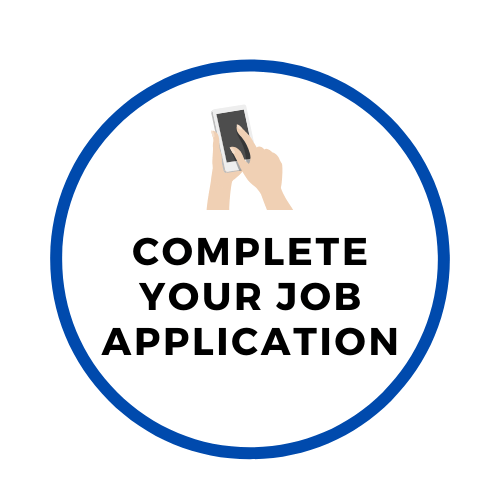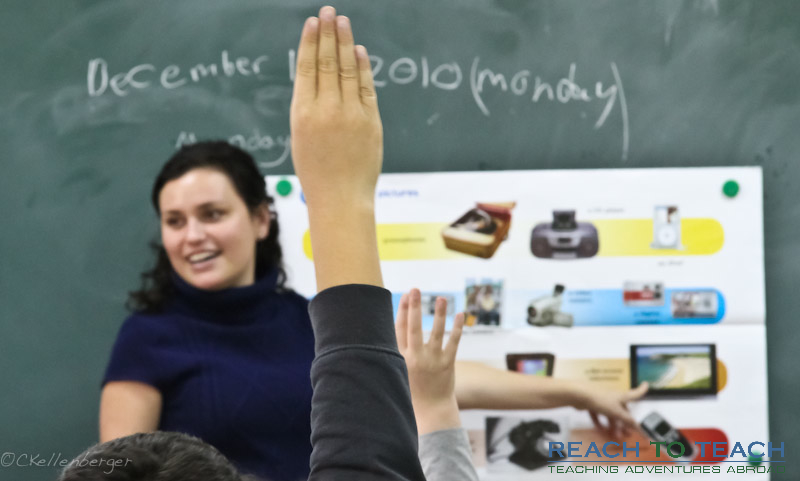Teaching English in Georgia
Frequently Asked Questions
Thank you for your interest. Our teach abroad program in Georgia is closed until further notice.
Please review the Reach To Teach Job Board for a list of open teach abroad programs and positions.
Teaching in Georgia – Frequently Asked Questions
What language do they speak in Georgia?
The official language of Georgia is Georgian.
Is Georgia safe?
Absolutely! However, just like in any country, you should exercise some caution: be aware of your surroundings, keep an eye on your belongings, don’t walk alone late at night, etc. We provide volunteer teachers with the training, information, and support that they need to stay safe during their time in Georgia.
Will I be placed in conflict regions?
No. Volunteers are not placed in any areas of recent conflict or in any areas that pose potential safety and security threats. All volunteers are placed in regions directly under the jurisdiction of the Georgian Government.
What requirements do I need in order to qualify to be a volunteer teacher in Georgia?
- Fluency in English
- Two years of post-secondary education
- Clean nationwide Criminal Record Check (CRC)
- Medical clearance test
- Flexibility, an open-mind, and a willingness to make a difference!
How do I obtain medical documentation?
You will need to fill out a medical self-assessment form and provide your examining physician with the medical examination report form for them to fill out. Alternatively, applicants can complete their medical examination in Georgia upon arrival.
In this case, applicants only need to submit the medical self-assessment form prior to their arrival. Further information will be provided when you have submitted your application.
How do I obtain a criminal record check?
Criminal Record Checks (CRCs) need to be nationwide and must be no more than two months old by the intended date of arrival. If you have lived for a lengthy period of time in multiple countries, then multiple background checks may be necessary. Each country has its own process for obtaining CRCs–please consult your government for specific advice.
Are there any guidelines or requests for letters of recommendation?
Referees should describe the applicant’s general abilities and explain why he or she would make a good volunteer teacher in Georgia. It must be written by a person who has been in professional and/or academic contact with the applicant. He or she can be an applicant’s professor, supervisor, employer, etc.
What if my documents are not in English?
If your medical documents, certificates, CRCs, etc. are not in English, you need to provide an official notarized translation of the documents.
Can I apply with my friend/spouse/significant other?
We will do our best to accommodate the needs of couples who come to Georgia together but due to the difficulty of finding families willing to host two volunteers, we cannot guarantee joint placements for couples.
Can I bring my children or pets?
No.
Is there visa support?
Citizens of many countries do not need a visa to arrive and stay in Georgia for up to 360 days. If an applicant does need a visa, however, we will advise you on how to do that.
How long will my contract be?
Contracts can be signed for one or two semesters and can last anywhere from 3 to 15 months, depending on the number of semesters and the start date of the contract.
Is it possible to apply only for a summer position?
No. We do not offer summer volunteer programs.
Can I extend my contract once I am in Georgia?
Yes, you may extend your contract for one or two semesters at a time once you are in Georgia.
What if I worked in Georgia, left and now want to reapply?
We love welcoming back former teacher volunteers. Volunteers whose contract ended under normal circumstances or for emergencies are eligible to reapply with us. Instead of submitting a new application, please contact us directly and we’ll reopen your application for employment.
How do the flights work?
Once you are accepted to the program you must provide us with the two most convenient departure airports and we will book your flight from one of the two. Most of the time, flights depart two days before your intended start date.
For example, if you are scheduled for a September 30th start date, your flight will most likely depart on September 28th. Flight information typically comes the week of your departure and will be forwarded to you via email. Your school will not pay for the costs of checking additional baggage or any additional expenses associated with your travel to Georgia. You are responsible for getting yourself to your departure airport(s).
What happens when I arrive in Georgia?
Representatives of your school will be at the airport to meet you and arrange your transportation to the training location.
Is it possible to save money while volunteering in Georgia?
Frugal living can allow volunteers to save a little money. Volunteers who live in rural areas typically spend less than volunteers placed in cities. Volunteers should not expect to be able to accrue great savings during their time in Georgia.
Will I be able to use my credit card(s) in Georgia?
The use of credit cards in Georgia is rare. Some places in cities such as Tbilisi will be able to accept credit cards but most places will only accept cash. There are ATMs throughout all towns and in some villages.
Can I break my contract?
Before signing a contract, it is very important to review your own personal situation and understand you are making a promise to students and a school that you are committed to work for them for the entire year.
If unavoidable circumstances occur you will need to address the situation. As always, the more professional and understanding you are in the handling of the matter, the better the outcome will be.
When contracts are broken it is very normal to forfeit elements of a contract (for example reimbursed flights, bonuses, etc).
What is the cost of living in Georgia?
The cost of living in Georgia is relatively low. A loaf of bread costs 0.8 GEL (0.40 USD) while a 500 ml bottle of water will cost approximately 0.6 GEL (0.35 USD).
How much money should I bring with me to Georgia?
Volunteers receive their stipend at the end of each month, so you will need to bring enough money to get by in Georgia until your first monthly stipend is received.
We recommend that you bring approximately one month’s stipend to address any potential first month expenses, such as tourism, food, and transportation in Tbilisi during your first week, gifts for host family/co-teachers, school supplies, telephone minutes, internet, unforeseen expenses, travel, or things you may have forgotten to pack or bring to Georgia.
Keep in mind that if you need to purchase a visa to enter Georgia you should bring 100 GEL (~60 USD) for that, and if you intend to get your medical check done in Georgia you will need about 70 GEL (~45 USD).
What documents should I bring to Georgia?
Upon your arrival in Georgia we will need to verify the original copies of your medical documents and your Criminal Record Check. If you did an online Criminal Background Check, the electronic copy will be sufficient. Keep your boarding passes!
Do I need to get any vaccinations?
We recommend consulting your physician to determine which vaccinations are recommended based on your health and past vaccination history.
Because you will be working with children, you may want to consider making sure that your hepatitis and TB shots are up to date. If you plan on traveling to other countries, don’t forget to ask your physician about any recommended vaccinations for those countries, too!
What kind of training will I receive?
Upon arrival, each group spends one week together in Tbilisi at Orientation Training.
Will I have internet access?
The majority of schools will be equipped with computers and internet access. Volunteers can bring their laptop computers; USB internet modems are available for you to purchase. The prices and coverage areas vary from company to company.
Can I receive mail or packages?
Before someone sends a package to you in Georgia, make sure to check all the rules and regulations regarding postal service. Please be advised that the rules and regulations are subject to change without warning. Please see the manual for more information.
I am a vegetarian – will this be a problem in Georgia?
Vegetarians are not very common in Georgia, but maintaining a vegetarian diet is definitely possible. Georgians eat lots of bread, cheese, fruits, vegetables, pasta, and nuts.
If you explain to the family that you cannot eat meat, they will understand and try to cook meals that take your needs into consideration. Additionally, many restaurants offer a vegetarian “fasting menu” for religious reasons.
What is the actual time spent in the classroom during a typical week?
This varies greatly from school to school based on each school’s needs. The maximum working hours are 30 hours a week, Monday to Friday (weekends off). These hours include planning time, either alone or with a local English teacher. Each volunteer will be paired with up to three Local English Teachers.
How many students will be in one class?
Class sizes vary; the average class size is twenty students.
Will I have access to materials such as printers, textbooks, and workbooks?
Volunteers get a set of books, which they will teach with while they are in Georgia. The availability of any other materials depends on the size and location of the school. Most of the schools are equipped with computers, but resources to print/copy documents will be limited.
What school supplies/teaching aids should I bring?
Resources are extremely limited in Georgian schools. Flash cards, pencils, erasers and pencil sharpeners are some of the basic supplies recommended by former TLG Volunteers.
We also recommend bringing pictures of your family, home, and country—anything that will help you to tell the students who you are and where you are from will be greatly appreciated. Most importantly, bring your creativity and eagerness to make a difference in the lives of your students!
What should I wear at school?
While at school you should dress cleanly, conservatively, and professionally—not necessarily dress suits or coats and ties, but presenting a professional appearance according to Georgian cultural standards. This means dresses, skirts, and dress slacks for women (depending on the location; some schools in rural areas do not allow pants) and slacks and button-down shirts for men.



